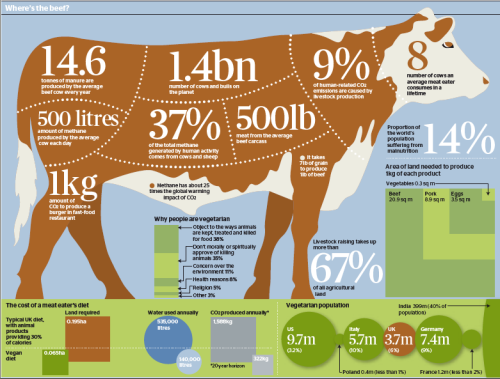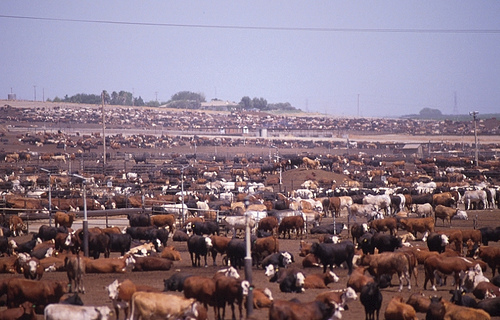And the consensus was- my belly was angry with me. VERY angry.
I felt guilty immediately after dinner. But, I've come to the conclusion that while I definitely could have gone without eating meat on Thanksgiving, I refuse to be upset with myself. I have been doing so good with my task for the past three months and I needed a break, at least for one day.
So now, my Historical Ecology class is over, and I have learned so many things that I will take with me and try to pass on to anyone willing to listen (and thanks to all my friends and loved ones for putting up with my ranting the past few months), but I'm not going to beat myself up if I indulge every now and then (hopefully more then and less now...). Because, like I said before, every little bit helps! And I want to continue to post new knowledge and tales of my adventures in pescetarianism, because it helps me to stay on task and be diligent.
Over the course of my project, I have enlightened a few friends who now are wholly committed to "meatless Mondays", one friend who also engages in "toothless Tuesdays", and one friend who is on the track to a fully vegetarian diet! I know it isn't much, but it is something. Every time a nay-sayer of my project tells me that what I'm doing makes no difference in the grand scheme of things, I am reminded of the story of the boy and the starfish. If you aren't familiar, I will retell it here:
One day, a little boy is walking down the beach and discovers a stretch of sand covered with starfish that have been washed ashore. He can tell that they are still alive, but they can't find their way back to the water. He starts picking them up one by one and throwing them back into the ocean. A man walks up to the boy and asks him what he is doing. The boy responds by telling the man that he is saving the starfish. The man then looks up and sees hundreds and hundreds of starfish laying on the beach and says, "There is no way you can save all these starfish, there is no point in even trying." The boy then bends down, picks up another starfish and throws him back, and then another, and says "Perhaps not, but I saved this one."
Cheesy, yes, but touching. And I believe that if everyone had the same viewpoint of the little boy, that the world would be a better place. So, I will update this blog every so often, for anyone interested in reading. Thanks everybody for supporting me, it means a great deal.




